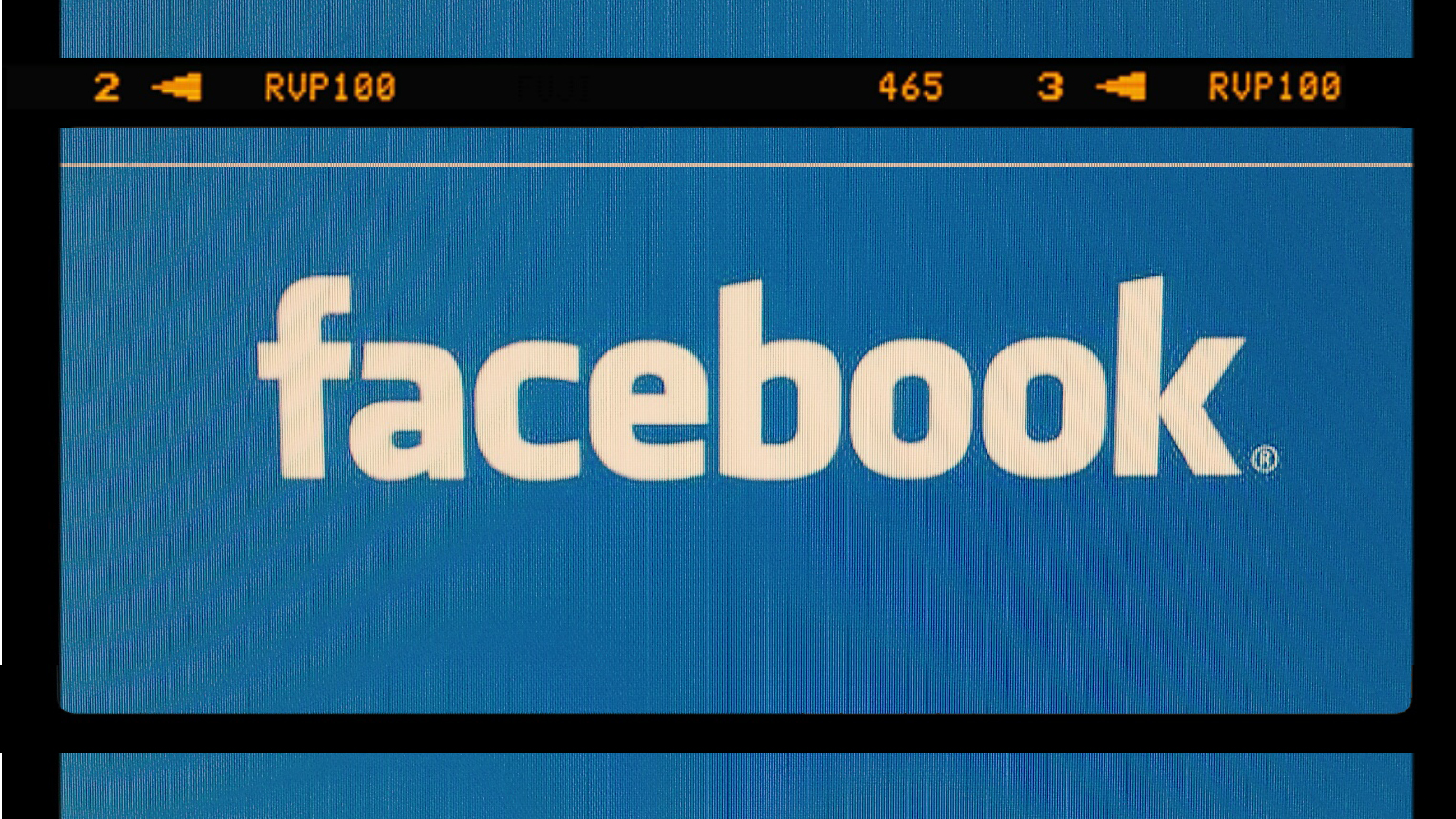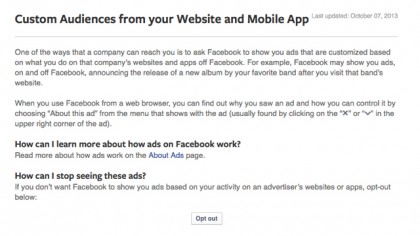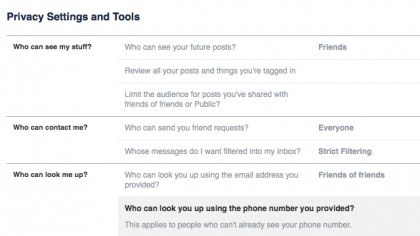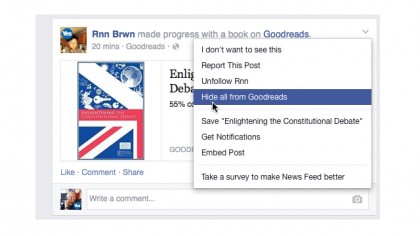Facebook spam: where it's from and how to stop it
Say goodbye to unwanted messages and noisy notifications

If your Facebook news feed seems awfully full of ads lately, you're not alone: many of us are logging on to something that looks rather like the famous Monty Python "spam" sketch where everything on the menu involves spam.
Some of the things you're seeing are organic, so for example if you click like on a page or app the recommendations that pop up aren't paid-for, but instead Facebook's best guesses about what else you might be interested in.
But many ads are paid-for, and that's largely because it's getting harder and harder for brands to reach people.
Facebook tells businesses that on average their pages only reach 16% of their fans, and one of its solutions is the sponsored post. The business chooses the location, interests, age and gender of the people it wants to target and how much it wants to spend, and Facebook inserts the posts into the appropriate users' news feeds.
The bad news is such ads are here to stay, because they are a key part of Facebook's revenue strategy. But the good news is that you can limit what you see.
Be more secretive
The more Facebook knows about you, the more it can target you with ads - so if you've diligently filled in lots of information about your interests, likes and dislikes then you're making the advertisers' job easier. Be wary about the information you give to apps, too: does an app that displays a picture of a kitten really need to know every single thing about you?
Opt out of ads
Facebook can customise adverts based on your activity on other sites, and while there's an opt-out it's hardly well-advertised: click on settings > adverts and scroll down to the second to last paragraph, where there's an opt out text link that takes you to the opt out page.
Get daily insight, inspiration and deals in your inbox
Sign up for breaking news, reviews, opinion, top tech deals, and more.
This won't stop ads from appearing, for that you'll need an ad blocker such as AdBlock Plus. But it will stop sites you've visited outside Facebook chasing you around on Facebook.

The opt-out is per-browser and per-device, so if you use multiple browsers you'll need to opt out in each one (and opt out again any time you clear your cookies). The equivalent mobile setting is limit ad tracking.
You can reject specific ads in your news feed too. Click on the arrow at the top right hand corner of an unwanted ad and choose "I don't want to see this" and you'll be given the option to hide all ads from that particular organisation.
Stop liking so much stuff
One source of Facebook spam might be you - or rather, your use of the like button. It's easy to end up liking lots of stuff. Annoyingly, competitions often make it a condition of entry, and sometimes clicking like on a friends' post is a good way of indicating approval without getting into a conversation about it.
Unfortunately those likes make a huge difference to what you see on Facebook.
When Wired's Mat Honan decided to hit like on every single thing posted to his Facebook news feed, his friends' posts quickly disappeared under an avalanche of advertising and political extremism. Not only that, but his endless liking polluted his friends' feeds too.

Writing on Medium, Elan Morgan tried the opposite approach: instead of using the like button, she left nice comments on things instead. "I feel as though reason has been restored," she writes.
"I can comment on a cute cat photo without being inundated with all the animal videos 800 people shared this week, and I can comment on a post about race relations without then having Facebook trot out an endless showcase of vitriol."
It does seem as if on Facebook, the less you like the more you'll like it.
Other kinds of spam
Some of the more irritating kinds of Facebook spam are the mass invitation, where someone installs an app and it automatically contacts everybody in their network, and the unwanted update, where an app tells someone's entire network what they're doing.
The first kind of spam is also used to promulgate scams, and you can avoid them by taking the same approach you would to email: be suspicious of links from people who don't usually post links, don't authorise anything you're not 100% sure of and assume that if something looks too good to be true, it probably is. If you do get suckered you can zap the app from settings > apps.
Block entire apps
It's quite common to be spammed from an account you don't want to unfollow. For example you might get invitations to play games you're not interested in, or automated messages telling you that somebody's done something in a particular app.

The good news is that you can shoot the messages without also shooting the messenger, so if you don't care what somebody's reading on Goodreads you can click on the arrow in the top right hand corner of the post and select "hide all from Goodreads". If you suspect your apps are boring everybody else, you can limit their posts in settings > apps.
Block individual users' apps and invites
Being able to block individual apps is great, but sometimes the problem isn't the apps but a single person who installs lots and lots of the damned things and invites you to try every single one. Once again you can solve that without unfollowing them: go into settings > blocking and block app invites. The section below enables you to block specific users' event invitations.
Filter your messages
If you're receiving unwanted Facebook messages you can use the report a message link, you can set stricter filtering so that any messages that aren't from close friends end up in the other folder, or you can block the sender altogether.
It's worth noting that while filtering can be effective, it doesn't get rid of everything: messages can still appear if you're included in a group message, if someone who isn't on Facebook contacts you using the Messenger app or, annoyingly, because "someone you're not connected to on Facebook may pay to ensure their message is routed to your inbox instead of your other folder." Thanks, Facebook, thanks a bunch!
Nobble notifications
If you'd rather not be notified about every single thing that happens on Facebook, you can cut down the babble in settings > notifications. For example you might limit email notifications to security concerns only, or group notifications so that you're notified of friends' posts but not other peoples'.
- Facebook aren't the only ones, Twitter are going to be showing you unwanted messages too.
Writer, broadcaster, musician and kitchen gadget obsessive Carrie Marshall has been writing about tech since 1998, contributing sage advice and odd opinions to all kinds of magazines and websites as well as writing more than a dozen books. Her memoir, Carrie Kills A Man, is on sale now and her next book, about pop music, is out in 2025. She is the singer in Glaswegian rock band Unquiet Mind.
